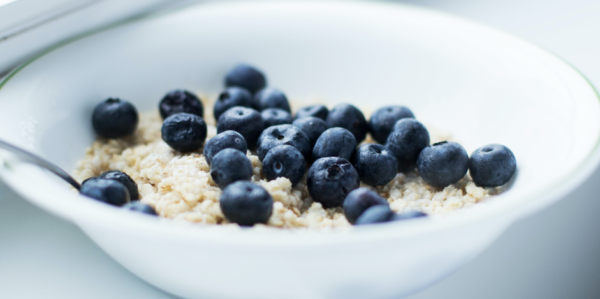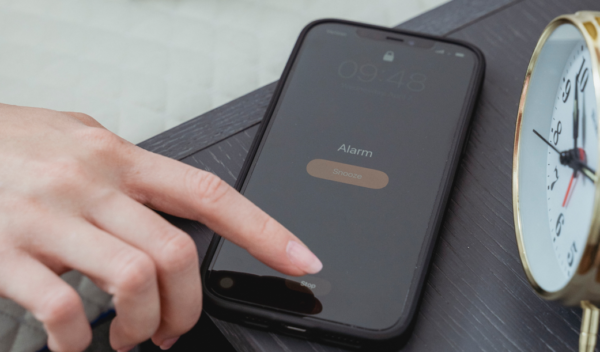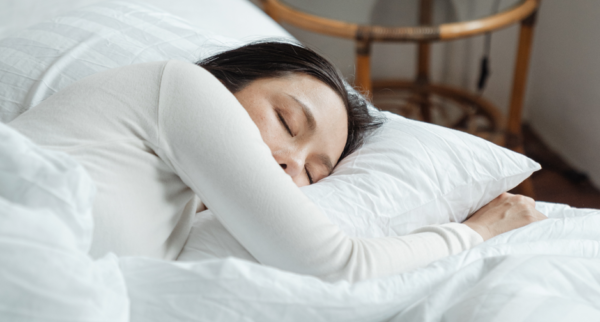Sleep is necessary to recharge your body and keep your brain functioning properly. But there are times when, no matter how tired you feel, you just can’t fall asleep. You’ve tried using home remedies to sleep, but nothing helps.
Being sleep deprived can lead to poor cognitive function, reduced immune function, increased inflammation, and may increase your risk for chronic disease. There are several different factors that can affect your sleep and we’ve gathered eleven safe and effective natural sleep remedies that actually work.
If you’re tired of being tired, read on and before you know it you’ll be sleeping like a stone.
Top 11 Sleep Remedies
A quick online search for “how to sleep better” will give you a lot of suggestions on how to get a good night’s sleep. Your search results will reveal various different natural remedies to fall asleep and advice on the things you need to avoid so you can sleep well. But how do you sort out useful information from inaccurate and even harmful suggestions?
We’ve pored through those suggestions and weighed them against modern medical studies. From our research, we were able to separate the myths from remedies that actually work. And what we have gathered here are the top 11 natural ways to help you get better sleep.
1.Try Tryptophan Foods
Tryptophan, or L-Tryptophan in full, is an essential amino acid that cannot be synthesised by humans but is necessary for a wide range of cognitive and behavioural functions, including learning, memory, visual cognition, and aggression control.
Foods rich in tryptophan also help improve sleep quality and your ability to fall asleep faster. If you’ve ever had too much tryptophan-rich turkey on Thanksgiving, you’ve probably experienced the “turkey coma.”
Tryptophan foods aren’t just one of the most effective home remedies for sleep. Research trials suggest that tryptophan can also help alleviate seasonal affective disorder, depression, premenstrual discomfort, and anxiety from nicotine withdrawal.

What Tryptophan Foods Can Help with Sleep
Foods high in tryptophan are natural sleep aids. Here are some examples of foods that are high in tryptophan:
- Canned fish: Each 100g of canned tuna or salmon has nearly 300mg of tryptophan
- Turkey: Contains 250-300mg of tryptophan per 100 grams
- Milk: Whole milk has 750mg tryptophan per litre, while 2% reduced fat milk has over 550mg
- Cheese: A 25g chunk of cheddar cheese contains nearly 150mg of tryptophan
- Oatmeal: A 250g bowl of oatmeal has nearly 150mg of tryptophan
- Soy milk: There are nearly 100mg of tryptophan in a 250ml cup of soy milk
2. Exercise
One of the healthiest, natural ways to help you sleep is exercise.
With just 30 minutes of moderate aerobic exercise, you can increase the amount of deep sleep you get each night, giving your brain and body more chance to rejuvenate. Exercise also stabilises your mood and releases tensions, making it easier for you to fall asleep.
Brisk walking, gardening, tennis, swimming, and basketball are just a few of the moderate aerobic exercises that can help you sleep better. It is best to finish exercising at least 90 minutes before bedtime, to give your body time to clear out endorphins and cool your body temperature down for sleeping.
How Exercise Helps
There are several reasons why exercise is one of the best natural ways to induce sleep.
When you exercise, your body produces endorphins that relieve pain, reduce stress, and improve your sense of well-being. (This is the source of the famous “runner’s high”). Those endorphin levels fade as you cool down, but the sense of relaxation and calm remains.
Exercising outdoors exposes you to natural light, which helps your body set its sleep/wake cycle. And exercise tires you out, which makes it much easier to doze off when you finally lie down.
3. Take Melatonin
Melatonin is a hormone produced by the brain that regulates night and day cycles. Many people take melatonin supplements as an effective over-the-counter sleep aid. Although it comes in a bottle, melatonin is a natural sleep aid that helps our body control our sleep/wake cycle.
Taken about one hour before sleeping, melatonin may reduce the time it takes to fall asleep. Melatonin can be helpful for shift workers adjusting to a new schedule or travelers dealing with jet lag.
What You Need to Know About Melatonin
Your melatonin levels are naturally highest at night when you are preparing for sleep. If that cycle is disrupted, taking melatonin supplements can help put your body into relaxation mode. While melatonin is not addictive or likely to cause hangovers, occasional side effects may include:
- Headache
- Dizziness
- Nausea
- Drowsiness
4. Stay Away from Artificial Lights Like Screens
Dim light is a natural sleep remedy and bright lights naturally tend to wake you up. If natural sleep remedies that work for others fail for you, you may simply need to look away from electronic screens before bedtime.
Artificial lights from smartphones, televisions, or computer screens throw off your body’s circadian rhythms, delaying its release of melatonin and tricking your body into staying awake. This pushes back bedtime and leads to less restful sleep.

What You Can Do Instead of Using Screens
Instead of staring at screens, try these pre-bedtime habits instead:
- At least one hour before you go to sleep, take your smartphone, tablet, and laptop from your bedroom. This removes the temptation to check your social media feed just one more time.
- Try reading a book or magazine. Reading can help quiet mental chatter and help you wind down for bedtime.
- Listen to soft, relaxing music. A bedtime soundtrack is one of the best things to help you sleep and signal your subconscious that it’s time to go to bed.
- Practice mindfulness. If you find yourself worrying rather than falling asleep, accept the worry and let it pass rather than letting it consume your sleep time.
- Get on a schedule. When you have established a regular bedtime schedule, your body will work in harmony with your schedule and make it easier for you to fall asleep.
5. Relaxation Techniques
If you’re wondering how to sleep better at night naturally, why not try meditation instead of medication? Some excellent relaxation techniques include:
- Deep breathing: There are a number of breathing techniques that can help you get to sleep.
- Visualisation: Quiet visualisation as you fall asleep often segues into dreams and even lucid dreams.
- Autogenic relaxation: Concentrating on and imagining feelings of heaviness and warmth can help you relax.
- Muscle relaxation: Learning how to consciously relax your muscles helps you let go of tension before bedtime.
How These Techniques Help
The deepest parts of your brain have trouble distinguishing between actual events and things you are just thinking about. This is why your heart rate, breathing, blood pressure, and other physiological indicators speed up in a fight-or-flight response when you are worried about an upcoming bill.
But just as your thoughts can put your body in combat mode, they can also slow your body down. Similar to how the fight-or-flight response increases your feelings of fear and panic, learning to relax your body helps to relax your mind.
Relaxation techniques are a holistic approach and natural sleep aid that gets your whole system involved.
6. Take a Hot Bath Before Bedtime
Showering before bed is one of the most effective natural sleeping remedies. Research suggests that this is more than an old wives’ tale. An analysis of 17 sleep studies found that bathing or showering in 40°C to 42°C water before bedtime improved sleep quality.
Researchers believe that the warm water stimulates blood flow to the hands and feet. This lets body heat escape more quickly and helps your body cool down to its evening sleep temperature.
As a natural sleeping remedy, it is best to take this warm bath or shower 1 to 2 hours before bedtime.
7. Try Essential Oils
Essential oils made with these sleeping herbs can help you get more rest:
- Lavender: Among herbs for sleeping, lavender is the best-researched and has been shown to improve sleep time and quality.
- Bergamot: Bergamot lowers heart rate and blood pressure, which reduces anxiety and helps you relax.
- Chamomile: Chamomile oil contains apigenin, an antioxidant that promotes sleepiness and reduces insomnia.
- Cedarwood: Cedarwood is one of the best sleep herbs when you have a cold, as it can soothe congestion and fight infections.
- Clary Sage: Clary sage has antidepressant and anti-anxiety effects that can help improve your pre-sleep mood.

8. Have a Cup of Warm Milk and Honey
One of the best ways to end your day is with a nice warm cup of milk and honey like what you used to drink before bedtime when you were younger. Milk and honey don’t just taste good together, they are natural sleep aids.
Milk is rich in tryptophans that can help you sleep, and soothing honey can ease sore throats and reduce nighttime coughing that might keep you awake.
Several studies have found that milk and honey are an effective sleep aid that improves sleep quality in both young and old alike.
9. Have a Bedtime Routine
Among the best sleep remedies is having a regular sleep routine. There’s a reason parents put their very young children to sleep on a set schedule. Repetition trains our brains and bodies that it is sleep time.
Simple acts like turning off your screens or playing some bedtime music reinforces your body’s circadian rhythms. The repetition reminds your hypothalamus that it is slumber time and reduces your late-night stress and anxiety. It also helps you avoid those little “one last thing” distractions that can keep you awake for hours.

10. Don’t Eat or Drink Too Much Before Bedtime
Many people end their day with a bedtime snack. But eating or drinking less than an hour before bedtime may reduce your quality of sleep.
When you lie down on a full stomach, you increase your chances of heartburn and indigestion. And many bedtime snacks feature chocolate, cola, or other items containing both sugar and caffeine. That energy boost can increase your wakefulness time and cut into your sleeping hours.
Instead of snacks, try one of our natural ways to induce sleep. You’ll get more rest and less calories.
11. Use a Weighted Blanket
Like being hugged or held, a weighted blanket provides deep pressure stimulation that triggers a sense of safety and security. Weighted blankets are natural sleeping remedies that reduce the production of cortisol, a hormone associated with stress responses.
Weighted blankets also increase your brain’s serotonin levels. This leads to feelings of comfort and well-being that let you relax. They also increase the levels of melatonin, making you feel sleepy as your brain moves into bedtime mode.
Bonus – Stay Cool
Your brain cools your body down as part of the sleep cycle. The warmer your room, the more difficult it becomes to cool down the body core.
Ideally, your sleeping area should be between 15°C to 19°C (60°F to 67°F). This is cold enough to allow your body to cool down but not too cold that it disrupts your slumber.
You should always have a selection of thin and thick blankets so you can stay warm enough but not too warm.
Why Use Natural Sleep Remedies
Prescription sleeping medications can lead to various side effects, some of which may be very serious. While they can be a fast-acting sleep remedy, addiction and habituation are real concerns. There are also questions about the quality of sleep provided by prescription sleep aids.
Natural sleep remedies may not knock you out immediately, nor are they a quick and easy fix to your sleep problems. You may have to change your nighttime routines, turn off your screens, or change your diet. But the changes you make in your sleep health will be lasting and risk-free.
The Pros of Using Natural Sleep Remedies
Disturbed, broken sleep can wreak havoc on your emotional and mental health. Sleep deprivation has a negative impact on your memory, mood, and logical thinking. But insomnia can often be treated with a few simple things to help you sleep.
These natural sleep remedies are inexpensive and readily available. Warm milk and honey cost very little and a brisk walk around your block costs you nothing. But both these things can be part of an effective sleep routine that will help you fall asleep faster, sleep deeper, and wake up feeling more refreshed.

How to Sleep Better by Having Good Sleep Hygiene
Every morning, we start our day with a personal hygiene routine of washing up, brushing our teeth, drinking our morning beverage, and starting our day. Sleep hygiene at the end of the day is just as necessary, but it is often ignored.
Establishing a consistent bedtime is one of the best natural sleep remedies because it trains your brain to feel sleepy as the hour before going to bed approaches.
Just as you start your day with a shower, you should start your sleep routine by turning off screens. Just as your morning routine starts your day, your sleep routine helps you end it with a good night’s rest.
How Natural Sleep Compares to Natural Sleep Aids
Sleep remedies treat insomnia when it becomes a problem. Natural sleeping remedies can help on those occasional nights when your body is tired but your mind refuses to cooperate. But if you are regularly troubled by insomnia or restless sleep, you need to address the underlying issues.
Sleep hygiene helps ensure that insomnia does not become a problem in the first place. By making a few very small changes in your lifestyle and diet, you can eliminate many of the most common insomnia triggers and improve your emotional, physical, and mental well-being.
Key Takeaways
Researchers studying how to get a good night’s sleep have traced many sleep disorders to the prevalence of screens in our daily life. Going dark for an hour before bedtime helps you fall asleep faster.
When worries keep you from falling asleep, it feels like you’ve lost control of your thoughts. Mindfulness and relaxation techniques can help you acknowledge and ground your anxiety.
Essential oils, quiet background music, and a cool bedroom can all be part of a sleep routine. Perhaps the most important thing of all is that you have a sleep routine and a regular bedtime schedule.
Frequently Asked Questions
How Much Sleep Do You Need?
How much sleep do you need? It’s complicated. Sleep experts say adults should get between 7 to 9 hours of sleep every night. Adults who average less than 7 hours a night may be at increased risk of obesity, diabetes, high blood pressure, heart disease, stroke, or depression.
But sleep quality matters as much as the number of sleep hours. If your sleep is broken or restless, you may not get enough of the deep sleep you need to rebuild your body and recharge your brain. Sleeping in a dark room or with an eyemask may help you improve your sleep quality.
What Can Help Me Go to Sleep Naturally?
Lavender oil has been shown in several tests to improve sleep quality, and it smells great.
If you’re wondering how to sleep better, try turning your thermostat down. An air temperature between 15°C to 19°C (60°F to 67°F) is best for falling asleep and staying asleep.
Perhaps the best sleeping aid is having a regular bedtime routine. When you go to bed at a regular time, your body’s sleep/wake clock becomes accustomed to the schedule.
What Is the Best Natural Remedy for Anxiety at Night?
If your worries keep you awake, perhaps a natural remedy for anxiety is in order.
A brisk walk an hour or two before bedtime helps with both sleep and anxiety. Exercise tires you out, which makes sleeping easier. Endorphins released during exercise quell worries.
Some artificial colors and preservatives have been linked to mood changes. Other important aspect of natural remedies is to eliminate processed foods from your diet and start eating more fruits, vegetables, and lean proteins.
How to Sleep Better at Night Naturally
There are many ways to deal with insomnia without taking pills for sleep.
A warm shower about an hour before bedtime is one of the best natural sleep remedies.
30 minutes of brisk exercise during the day may help you fall asleep faster and sleep better.
Try going to bed around the same time every night to establish a regular routine. Also, during this time, shut down electronic screens and simply have a quiet, dimly lit room.
What Is the Most Effective Natural Sleep Aid?
There is no single most effective sleep remedy. Everybody has their own personal take on how to get a good night’s sleep.
Insomnia is a symptom rather than simply an issue to be dealt with. Your sleep difficulties point to imbalances that have left you off center.
By setting up a bedtime routine with decompression time, you can deal with your issues in a mindful and productive way rather than letting them ruin your sleep.
What Is the Best Herbal Remedy for Insomnia?
While there are a number of herbal sleep remedies, most herbologists agree that the best herbs for sleeping when you have insomnia are the following:
- Valerian root has been used as a sedative since Roman times
- Chamomile has compounds known to relieve anxiety and tension
- Ashwagandha has been shown to reduce depression and anxiety
- Kava is rich in sedating and relaxing kavalactone compounds
What Herbs Make People Sleepy?
If you are wide awake and just want to be drowsy so you can get to sleep, the top sleeping herbs are:
- Lavender: This famous sleep herb improves the length and quality of sleep.
- Chamomile: Chamomile regulates your brain’s GABA receptors to reduce anxiety.
- Valerian: Valerian, a historical sedative, can reduce the time it takes you to fall asleep.
- Passionflower: Patients use passionflower extracts for pre-surgery anxiety and for sleep.
- Ashwagandha: Ashwagandha, an Ayurvedic herb, has long been used for anxiety and insomnia.



